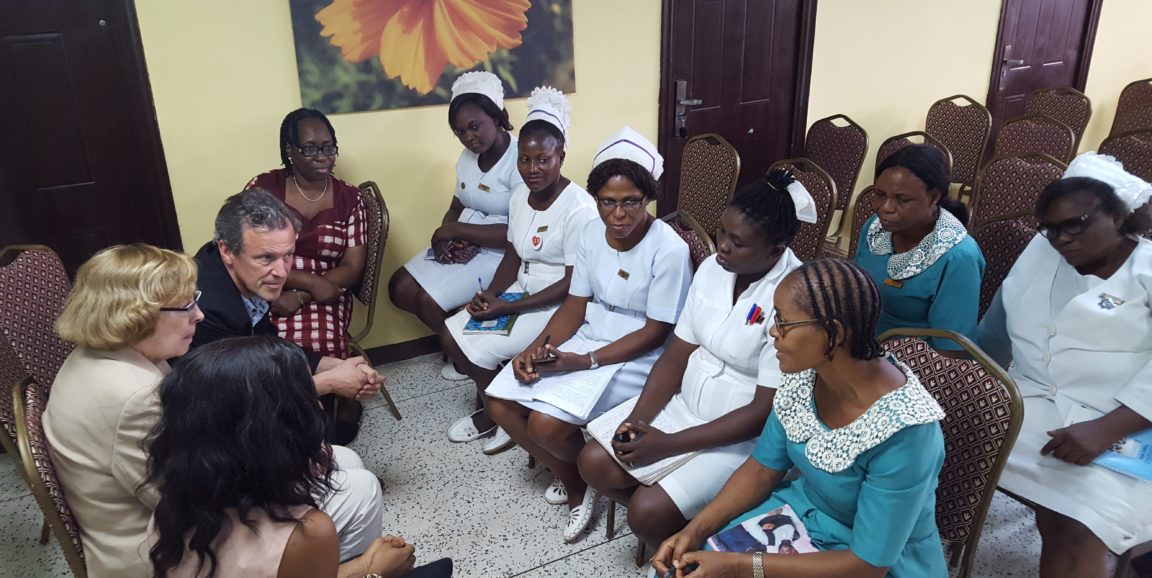The young Nigerian woman with breast cancer came to Ahmadu Bello University Teaching Hospital with disease so advanced that it had spread to her spine, and she was nearly paralyzed. The hospital, one of the country's largest medical research facilities, was so ill-equipped that it had no machine for advanced radiation therapy. All the young woman could do was hope and pray.
That is an unfortunately common story in Nigeria, Africa's most populous nation, where Stanford clinicians have established an ongoing partnership in the hope of improving outcomes for patients. As many as 80 percent of patients with cancer are diagnosed at a late stage of disease, and as a result cancer-related death rates in the sub-Saharan country are high, Stanford researchers told me.
"Patients are often impoverished so they run the other way when they are faced with the cost and fear of cancer," said Stanford palliative care expert Karl Lorenz, MD, whom I spoke to for a story in Inside Stanford Medicine. "Cost, fear, and culture are all wrapped in the reasons patients seek care late and [don't return for] follow-up treatment."
Lorenz was among a group of five Stanford physicians who recently visited Nigeria as part of the collaboration, which is spearheaded by Ami Bhatt, MD, Stanford's director of global oncology. Bhatt says she is driven by a sense of moral justice to help address some of the vast inequities in the world's cancer care.
"It's hard to be faced with people who are very similar to you but have been born into different circumstances and thus can't access the services that you have... I feel everyone should have access to the things my loved ones do, and it's in my capacity to do something about it," she told me.
In the past year, Bhatt has made three trips to Nigeria, each time bringing teams of Stanford physicians and nurses to help address some of the gaps in diagnostics and treatment. They have introduced new technologies to test for cancer, trained nurses to administer chemotherapy drugs and helped develop a system in which specialists work together on specific cases.
"As a person who works in health care, there is nothing better than connecting with colleagues around the world and impacting the future of health care there," said Shruti Sheth, MD, a breast cancer specialist who has been involved from the outset. "It also helps shed light on our own practices. We are also learning from them. They have a tremendous commitment to the outcome of the patient and are doing so much with the little they have."
The Stanford researchers are helping Nigeria develop a national cancer control plan, which envisions the creation of eight regional comprehensive care centers. Beverly Mitchell, MD, who has led the effort to have the Stanford Cancer Center recognized as a comprehensive cancer center by the National Cancer Institute, is providing guidance to government officials and hospital leaders in Nigeria on how to build their own centers.
"People throw up their hands and say cancer is too big of a problem," Mitchell said. "But if you start with these cancer center upgrades, even modest changes can make a huge difference."
Photo of Beverly Mitchell and Karl Lorenz with nurses at the Lagos University Teaching Hospital by Ami Bhatt




